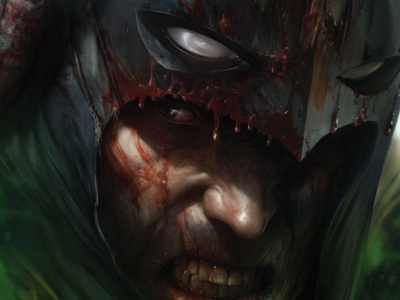Ian Gould of Ace Comics & Games in Brisbane, Queensland, Australia saw Now Comics' Tony Caputo's comments on Marvel licensing its comics (see 'Now Comics' Tony Caputo Asks What If?'), and offers his thoughts:
Tony Caputo's argument that Marvel would be better off licensing out its characters has a great deal of logic. However, the fact that even during its bankruptcy when the company was close to liquidation Marvel chose not to go down this path suggests there may be additional factors at work which Tony has not considered.
The following suggestions are tentative and speculative:
1. Publishing is not merely a means to exploit existing characters -- it is a low-risk, low-cost way to develop new characters, which can, in turn, be exploited. Runaways is an example of a property developed in the recent past which appears to have potential for exploitation in other media. The push behind the Marvel Next line suggests that this is a priority for the company.
2. Retaining the comics within a single publishing entity may have economies of scale and synergistic benefits not available to licensees. Marvel, as the largest publisher of comics in North America, probably has the lowest printing and production costs in the industry. While editorial costs are probably higher than for most other companies (Manhattan real estate isn't cheap), this may not be enough to nullify the other cost savings from the current arrangements. Highly profitable crossovers such as House of M would be substantially more difficult to arrange if the various characters were licensed to different companies. For these reasons, the profitability of licensed comics would potentially be lower than the current Marvel line, meaning that revenue from licensing would also be lower.
3. Volatility and cash-flow -- movies are a high stakes game and Marvel has indicated it intends to move into the production end of the business, which will require it to put up more of its own capital and take bigger risks. While publishing can also be volatile, it provides a strong cash-flow business which has the potential to moderate some of the troughs and peaks of the movie business -- probably 90% of revenue from Diamond is effectively guaranteed 45-60 days in advance thanks to pre-orders. I also suspect that Marvel has 30 days plus terms with its printers while its brokerage arrangement with Diamond probably delivers the bulk of sales revenue in 7 or 14 days. If that's the case, Marvel's getting a substantial cash cushion at zero effective cost.
4. Counter-party risk -- would Marvel really want to deal with essentially amateur and one-person companies? Realistically, there are probably only a handful of companies already in the industry that would have both the capacity and the desire to license a substantial part of the Marvel line -- DC, Dark Horse, Devil's Due, IDW and TokyoPop are the only ones that come immediately to mind.







